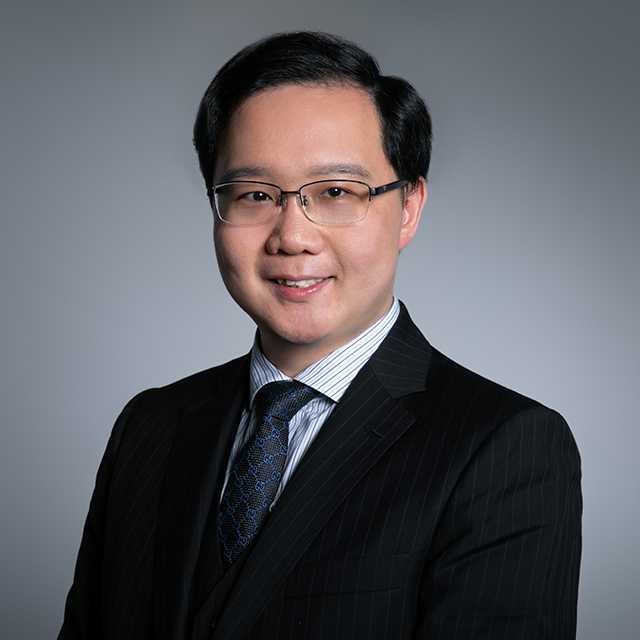Bankruptcy Law — Court of Appeal clarifies jurisdiction and procedure for challenging appointment of trustee in bankruptcy
The Court of Appeal held that it had inherent jurisdiction to consider the appointed trustee’s fitness to act, and that rule 158 of the Bankruptcy Rules provided the proper procedural route for seeking such directions.
Re Chan John Loong Fai
| Reference: | CACV460/2019; [2021] HKCA 1834 |
| Court: | Court of Appeal |
| Before: | Hon Kwan VP, Barma JA and Au JA in Court |
| Appearance: | Thomas WK Wong, instructed by Tang & So, for Mr Alan Chung Wah Tang (Trustee of the Property of the Bankrupt) |
| Date of Decision: | 10 December 2021 |
Overview
Mr. Alan Chung Wah Tang was nominated by creditors to act as a trustee in bankruptcy. Prior to this nomination, Mr. Tang had been found to have acted in contempt of court in another case and failed to disclose this conviction in separate proceedings. Pursuant to rule 158 of the Bankruptcy Rules, Cap. 6A (“BR”), the Official Receiver sought the Court’s directions on whether Mr. Tang was fit to act as trustee. The Judge found that the Court lacked jurisdiction to grant such directions.
Allowing the Official Receiver’s appeal, the Court of Appeal held that it had inherent jurisdiction to consider Mr. Tang’s fitness to act, and that rule 158 BR provided the proper procedural route for seeking such directions. In the circumstances, the Court accepted that Mr. Tang was fit to act as he was willing to and did give the Court assurances and undertakings as to his future conduct.

Background
The present appeal arose out of the bankruptcy proceedings concerning Chan John Loong Fai (“the Bankrupt”). The petitioner had nominated Mr. Alan Chung Wah Tang (“Mr. Tang”) as one of the joint and several trustees of the Bankrupt under section 17 of the Bankruptcy Ordinance, Cap 6 (“the BO”).
Mr. Tang had previously been found to have acted in contempt of court in Ip Pui Lam v Alan Chung Wah Tang (HCMP 450/2016; CACV 214/2016). Later, in an unrelated winding-up case, this finding was undisclosed in an ex parte application seeking to appoint him as one of the company’s liquidators (of Re JV Fitness Ltd [2018] 1 HKLRD 553).
Even though the Official Receiver (“the OR”) had informed the Bankrupt’s creditors that Mr. Tang of such contempt of Court, they resolved by a majority to nominate Mr. Tang as one of the trustees.
As a result, the OR took out a summons pursuant to rule 158 of the Bankruptcy Rules (“the BR”), seeking inter alia the Court’s directions on whether Mr. Tang is a “fit person” whom creditors in general meeting might consider appointing as trustee of the Bankrupt’s property.
Decision of the Court of First Instance ([2019] HKCFI 1886, [2019] 4 HKLRD 109)
L Chan J dismissed the OR’s summons. In his Lordship’s view, the purpose of the summons was effectively to remove Mr. Tang as trustee in these bankruptcy proceedings. Since the OR did not rely on s. 96(2) BO (which empowers the Court to remove a trustee from his office on the basis of misconduct) and instead invoked r. 158 BR (which was not applicable to removal of trustees), the Court did not have jurisdiction to grant the directions sought.
Furthermore, the Judge opined that Mr. Tang’s fitness in the general (non-case specific) sense was a disciplinary matter for the disciplinary committee of his professional body. He doubted whether it was open to the OR to administer further punishment against Mr. Tang under r. 158 BR.
The Judge also found that Mr. Tang’s failure to disclose the finding of contempt was negligent at worst, finding that it did not impact on his honesty, integrity, or fitness to act.
The OR appealed against the Judge’s decision. Essentially, two issues arose:
• Whether the Judge had erred in law in holding that the Court lacked jurisdiction to give the directions sought by the OR (“the Jurisdiction Question”);
• If the Court had jurisdiction, whether the Judge had erred in finding that Mr. Tang was a “fit person” to be appointed as a trustee under s.17 of the BO (“the Fitness Question”).
Ruling of the Court of Appeal — The Jurisdiction Question
Allowing the OR’s appeal, the Court of Appeal (“CA”) held that it had jurisdiction to consider and grant directions on whether a person appointed by the bankrupt’s creditors was a “fit person” to be so appointed. Any decision reached by the creditors as to the fitness of a proposed trustee was subject to the Court’s supervisory review:
“… the fundamental fact [is] that “the court has (as it must have) inherent jurisdiction over its officers, which is reinforced by the various statutory provisions … which, to my mind, confirm that the ultimate power to approve or disapprove an appointment of trustee is vested in the court.” (Judgment §43)
The CA concluded that it had been proper for the OR to invoke r. 158 BR as the procedural basis to raise with the Court any matters relevant to, and that might warrant disapproval of, the appointment. The rule enabled applications to the Court for directions on “any matter not provided by the Ordinance or any rules thereunder relating to any proceeding in court”, and one such matter would be the application procedure by which the Court could be asked to consider whether a proposed appointee is a “fit person” which can be appointed as a trustee under s.17 BO (Judgment §45).
Whether a particular application should be made ex parte or inter partes would depend on the nature and subject matter of the application. The CA noted that nothing in rule 158 mandated applications to be made ex parte. The present application, concerning assessment of fitness, should have been made inter partes so that Mr. Tang would have been able to respond to concerns about his fitness to act, as he was clearly an interested party affected by such an application.
Moreover, L Chan J had erred in regarding the OR’s summons as a disciplinary action to further penalise Mr. Tang for his previous contempt of Court or non-disclosure of his conviction for contempt:
“… the OR is simply carrying out her duty as the regulator of the insolvency regime, by ensuring that the fitness of a person appointed as trustee is properly considered. … the directions sought by the OR are prospective, protective and regulatory in nature.” (Judgment §50)
“High standards are rightly expected of a person holding the office of trustee … and previous unsatisfactory behaviour and repeated incidents indicating a failure to modify or change such behaviour are clearly relevant to the question of fitness going forward.” (Judgment §64)
Ruling of the Court of Appeal — The Fitness Question
The CA accepted that the OR had legitimate concerns about Mr. Tang’s fitness to act as trustee or liquidator. It proposed that the OR’s concerns be resolved by Mr. Tang’s giving assurances and undertakings as to his future conduct. Both parties agreed to this proposal.
In the circumstances, it was unnecessary for the CA to decide whether the Judge was correct to hold that Mr. Tang was a fit person to be appointed as a trustee.
Commentary
This decision is significant in that it is the first, and to date only, Court of Appeal authority recognising the Court’s inherent jurisdiction to determine / review, substantively and in full, the fitness of a person to act as a trustee in bankruptcy even though:
(a) that person otherwise
(i) has been validly appointed as trustee by a creditors’ general meeting in accordance with s. 17 BO and
(ii) may have in fact been acting as trustee for some time;
(b) s. 23 of the old BO, which expressly provided that the Court should certify that an appointment has been duly made unless the appointment was disapproved on the ground that, inter alia, the person appointed was not fit to act as trustee, has long been repealed, and the current s. 17 BO contains nothing of that kind; and
(c) no specific procedure has been prescribed under the BO or BR for even applying to the Court for such determination / review – the Court having now also authoritatively laid down that the “catch-all” r. 158 BR constituted the proper procedure, provided that an application thereunder proceeded inter partes.
Representation:
Thomas WK Wong, instructed by Tang & So, appeared for Mr. Alan Chung Wah Tang (Trustee of the Property of the Bankrupt).
|
Thomas WK Wong
“[Thomas WK Wong] has sound legal knowledge and analytical powers, outstanding research skills, and the ability to articulate arguments forcefully and yet clearly and succinctly.” Legal 500 Asia-Pacific 2021 – Commercial Disputes – Leading Juniors – Tier 2 Thomas is a seasoned civil litigator who was called to the Bar and joined Chambers in 2018. Prior to that, Thomas had practised for seven years as a civil litigation solicitor, at three top-tier litigation Firms. Both as Counsel and as a civil litigator, Thomas has handled and conducted a full range of Civil matters from company / insolvency and commercial / contract to defamation, enforcement of arbitral awards, and judicial review. Thomas is also a Fellow of the Chartered Institute of Arbitrators and of the Hong Kong Institute of Arbitrators, and acts as both Counsel and Arbitrator in arbitrations. Further details of his experience are available under “Selected Cases” in his profile. |
This article was published on 4 January 2022.
Disclaimer: This article does not constitute legal advice and seeks to set out the general principles of the law. Detailed advice should therefore be sought from a legal professional relating to the individual merits and facts of a particular case. The photograph which appears in this article is included for decorative purposes only and should not be taken as a depiction of any matter to which the case is related.
